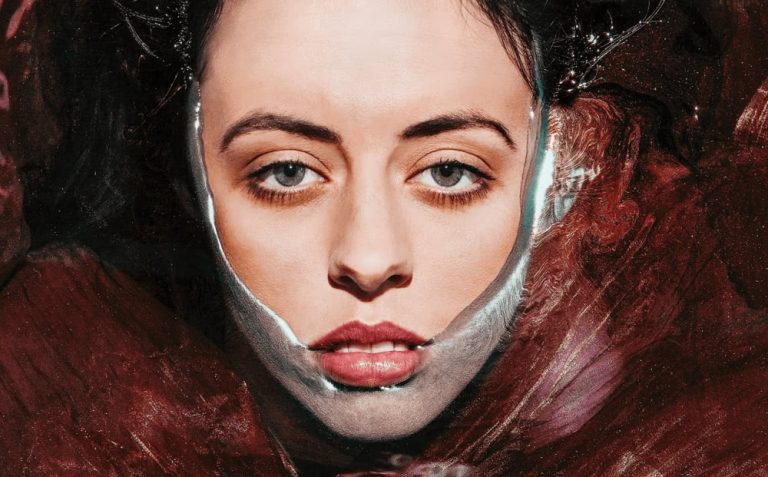The term “singer-songwriter” has always had a certain connotation to it; an aesthetic, even. A sound. And ever since her quiet and unassuming arrival into the Australian music scene, Sophie Payten – better known by her stage name Gordi – has been a singer-songwriter. Or, at the very least, that’s how it’s seemed. Truthfully, that tag is something Payten has spent the last couple of years actively working against – subtly, yes, but incrementally.
All that work has now culminated in the release of her stunning debut LP, Reservoir, which works both as a payoff to those who have followed Payten’s trajectory, and a cleanly-cut introduction point for those that haven’t quite got the memo just yet.
“These songs all came together over an extended period of a few years,” says Payten. “One half of the songs go between 2013 and 2015, and the other half was written last year. I knew all of these factors would mean the album was prone to complications, and the challenge was going to be creating some sort of cohesion. I made a point of having a system in place to ensure that. We had a week of recording and mixing in Wisconsin, and the aim of it was to bring the record together. We dropped a few different things into the different songs to link it as a body of work. By the end of that week, I felt like the album had really become one.”
https://www.youtube.com/watch?v=o_PB8SHuKWo
Reservoir was, uniquely, created with five different producers at the helm. This was Payten’s idea – one she felt strongly about ahead of Reservoir‘s recording. “Having the different producers was important to me because I wanted to have a lot of variation. I wanted to explore a broader style and in different corners, studying the light and dark. There’s simple moments, there’s epic moments… There’s a lot of colours that come through on this record.”
The five producers in question collectively sport a CV worthy of the hottest festival line-up: they have worked with the likes of Solange, PJ Harvey, Sigur Ros, Halsey, Perfume Genius and Alex the Astronaut. However, it wasn’t their credentials that sold Payten – rather, their specialties.
“Tim [Anderson] is more of a left-of-centre pop kind of guy. He was the guy to go to when it came to the hooky kind of stuff on the record. As for the more epic-sounding stuff, I knew to work with Alex [Somers]. He’s a producer that’s really mastered that style, while Ali [Chant] is great at capturing a raw, unvarnished vibe. There were also two tracks produced by me. I had a really clear idea of what I wanted them to sound like, and I felt capable of doing it myself. Working with the other producers actually really helped to boost my confidence in my own abilities as I came to work closer with them. The idea of collaboration was really wonderful and really helpful to me.”
The album is expansive not only in its timeframe and production credits, but also its geography. Along with the aforementioned Wisconsin, the album was also put together across sessions in New York, Los Angeles, Iceland and Australia. Now ostensibly a citizen of the world, Payten has seen a lot of change in her life across the last few years. For better and for worse, it’s dealt with on Reservoir. “I would say that one of the central themes of the record is that of platonic relationships,” she says.
“As you go through this period of growth and exploration in your early 20s, you come to realise these relationships you’ve accumulated along the way have become such a big part of who you are. I feel like I’ve kind of been struck by the tragedy that can come with that, I think. These long, slow-burning friendships or relationships can slowly dissipate. Maybe that’s just what’s supposed to happen, and you just have to be okay with moving in different directions. Still, that doesn’t mean it’s not still sad. I’ve been contemplating that for a number of years – especially as I tour more and I’m home a lot less.”
Speaking ahead of the release of Reservoir, Payten is acutely aware not everyone is going to gel with it. Lead single ‘Heaven I Know’ has already proven to be divisive, and there are moments on the record that get to even darker and more experimental places than that. It’s a bold, trying album; one that slow-dances with cavernous folk and delicate post-everything arrangements. Whatever idea you have of Gordi as a singer-songwriter type right now, one listen of Reservoir will promptly smash it. If that doesn’t sit well with you, Payten reasons, that’s a you problem.
“I’ve met a lot of really wonderful people in the last few years, and a lot of great artists who I really look up to,” she says. “I think the overarching thing I’ve learned from them is that you can’t let yourself get anxious about the things that you can’t control. What you can control is how proud you are of the music that you make, how much you’re satisfied with it, how much you feel challenged by it, how much integrity you put into it, how honest it feels to you. People will like it or they won’t. I don’t think I’d be creatively satisfied in a production that was just there to please the masses. As long as I like the music I make, I know I’m staying true to myself.”
Reservoir is out now. Gordi plays the Oxford Art Factory on November 30.

































